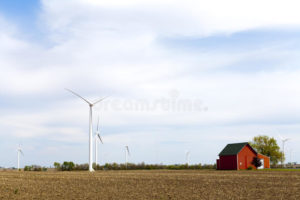Texas has been a major producer of energy for many decades. But it’s not just oil that is fueling the production. The Wind Turbine State is what the Lone Star State might be called today.
You will see three-blade, gleaming wind turbines slowly turning as you drive through West Texas. This area was recognized as one of America’s best places to generate wind energy more than a decade ago. Landowners initially resisted installing wind turbines on their land. But then they discovered that they could earn thousands of dollars per month in royalties.
The mineral rights that a land sale would have provided were very important when the oil industry boomed. Wind rights in West Texas are a hot topic.
Here are the current Texas land rights classifications:
Mineral Estates This is a list of all resources below the surface that are available for development (oil, oil, etc. ).
Surface Estates All that is on the surface of any piece of property are part of the estate.
Soon, there will be a new category: wind estate.
What buyers need to know about wind rights.
There are many types of property rights so a single parcel of land can be owned by different people in different ways. There’s another way to divide land ownership with the addition of “wind-estate”.
Wait, a minute – isn’t a windturbine on the surface? Turbines don’t hover above the ground which complicates the issue of wind estates. Most people rely on the specifications of mineral rights as a guideline, since there aren’t any laws that specify wind rights.
Texas law provides that mineral rights owners can have access to the property in order to use the resources they own. Mineral rights owners can install pipelines on the property and store equipment. A key factor to remember is that the law provides that a tie in a dispute goes to the mineral rights owner.
Most real estate experts believe that wind rights laws will be similar to mineral rights as the state works towards creating them. This is something legislators have been dealing with since 2007. Some sellers have withheld wind rights from land sales because there is no formal legislation. The sellers simply add clauses to the sale contract that state the lucrative wind rights will not be transferred with the property.
Buyers who are interested in West Texas (and their agents), need to decide if wind rights will be granted as part of a sale. Pay special attention to the mineral rights section of the resale agreement. Many sellers have modified the language to say that wind rights don’t convey. A deed might also state that the seller retains wind rights above the property. However, it is possible for things to get more complicated if another person has mineral rights.
Buyers who do not know about wind rights clauses could end up in court fighting for sole or full use of the property. Our knowledgeable agents are here to help you with all your questions and help make the real estate process go smoothly.
Original article: https://www.aceableagent.com/blog/wind-rights-for-texas-properties-up-in-the-air/









